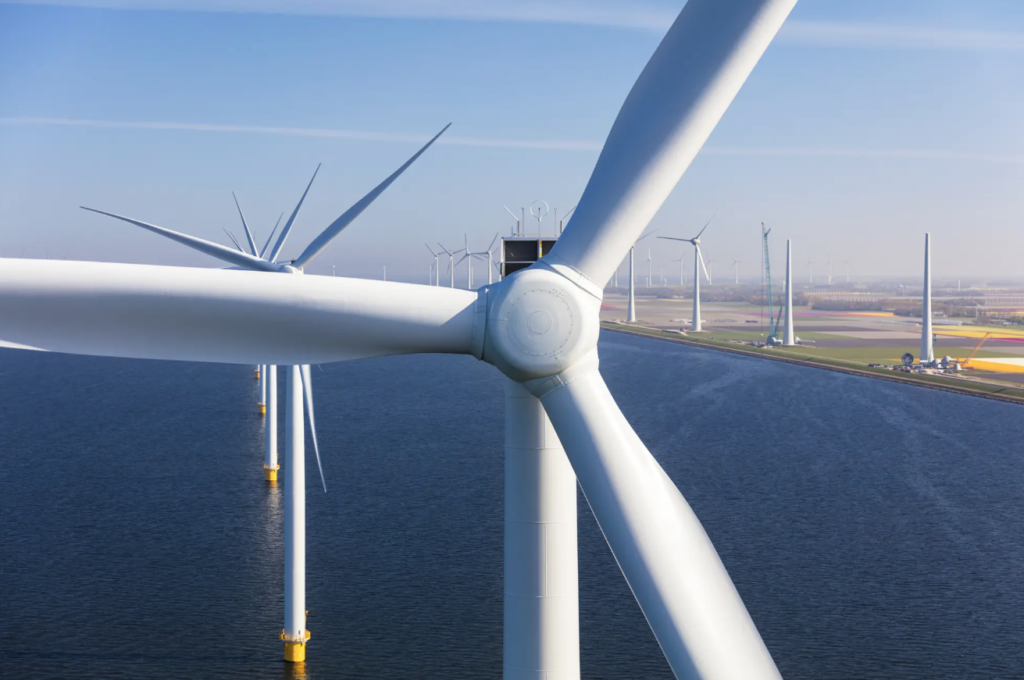The material could be recycled into higher-value products
(Sustainabilityenvironment.com) – The second life of wind turbines? It could be in the food industry. A prospect difficult to imagine today but which can already count on some real technical progress. To complete them, a group of scientists from Michigan State University, creators of a new thermoplastic resin. The material was created to facilitate wind turbine recycling, replacing the more traditional epoxy resins currently used by the wind industry.
These thermosetting polymers play an essential role in wind turbines. In combination with glass fibers, they form the composite material of the blades, a product that guarantees lightness and high strength. Too bad that this same resistance makes difficult the process of separation and recovery of individual elements. This is where the work of Michigan State University, presented these days at the autumn meeting of the American Chemical Society (ACS), fits in.
Obtained from a polymer of plant origin and a synthetic one, the resin has shown good performance in terms of durability and resistance, making hope for future use in the wind or automotive sector. But above all, it has convinced scientists thanks to its ease of recycling. “The beauty of our resin – explained scientist John Dorgan who presented the work at the meeting – is that at the end of its cycle of use, it can be dissolved, leaving whatever matrix it is in, so it can be used over and over again. This is the goal of the circular economy”.
New perspectives for wind turbine recycling
The composition of the polymer also offers new uses for wind turbine recycling.
The digestion of the resin in an alkaline solution, for example, releases poly(methyl methacrylate) or PMMA, an acrylic material commonly used in the making of windows, taillights of cars and many other objects. Not only. Increased digestion temperature can convert PMMA into poly(methacrylic) acid, a superabsorbent polymer used in diapers. The process also releases potassium lactate, which can be purified and transformed into candy and sports drinks. “We recovered potassium lactate for food use – said Dorgan – and used it to make gummy candies, which I ate“. The team’s next step? Making medium-sized blades for field testing.

